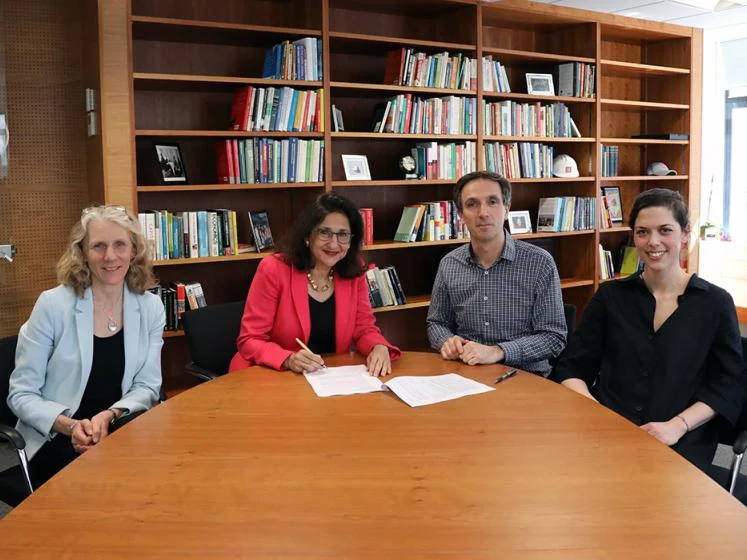LSE joins up with social business generator

The London School of Economics and Political Science has become a founding partner of Zinc, the company builder which seeks to solve social problems in the developed world.
Zinc, which is led by LSE Visiting Professor in Practice Paul Kirby, brings together experts from social sciences, design, technology and business, along with potential investors, to help budding entrepreneurs create technology-based companies and products to fulfill specific social missions.
The first Zinc cohort, recruited last October, were tasked with creating tech-based businesses which tackle the crisis in women and girls’ emotional and mental health. Over the course of six months the ‘Founders’ formed 17 companies which focused on this challenge, covering a range of sectors including transport, health, outdoor experiences and perinatal support. The full list of businesses is available at www.Zinc.vc
LSE’s partnership with Zinc is at the heart of the School’s commitment to tackle social challenges through private enterprise, as well as public policy. As part of this commitment, the School is co-developing ‘ASPECT (‘A social sciences platform for entrepreneurship, commercialisation and transformation’) to promote entrepreneurship based on social-science research in collaboration with the universities of Manchester, Oxford, Sheffield and Sussex, among others. Earlier this month, ‘ASPECT’ was awarded five million pounds from Research England as part of the Connecting Capability Fund.
Commenting on the agreement Professor Julia Black, Pro Director of Research at LSE, said:
"This is an incredibly exciting development. The agreement represents an even stronger commitment from LSE and our partners to employ social science research to tackle the world’s biggest problems in innovative ways to benefit society."
Following the announcement of the new partnership with LSE, Zinc has now launched its second social mission. This will focus on the 150m people living in places which have been hit hard by automation and globalisation over the last 20 or 30 years, as their traditional industries (such as coal, manufacturing, shipbuilding or tourism) have declined.
Commenting on the new mission, Paul Kirby, chief executive and co-founder of Zinc, said:
"There is an urgent need for more and better solutions to help people and places adapt to economic change. Solutions are needed to help those who are still suffering from the legacy of shifts that started in the 1980s and 1990s, as well as those affected by the coming waves of change that new technologies and global competition could bring."
To take on this challenge, Zinc is seeking to recruit 50 would-be entrepreneurs from across in the world. Over a nine month period, the successful applicants will have the opportunity to use insights from world-leading experts to better understand the problems posed by the challenge; to design, test and build effective technology solutions; find co-founders to create the new businesses, and access potential investors and partners.
The second mission will start on 1st October 2018. Anyone interested in joining can apply at www.zinc.vc/join until 9th July 2018.